Monomyth
A downloadable game
What Is This Game?
Monomyth is a 5e-derived d20 TTRPG system designed by a bunch of oldheads who grew up playing 3rd edition DnD. Monomyth is a feature-packed system that seeks to inject the kind of splashy combat gameplay we like to pursue in IGS's home 5e games.
The system started as ideas and homebrew, then slowly evolved into an actual fully-specced game. The system pulls heavily from the 5e SRD as a design "crutch" since, this being our first project, we felt springboarding off one of our most commonly played systems would be a good start.
What To Expect From This System
Derived From and Compatible With 5e SRD
This system is compatible with the 5e SRD published under CCBY and any derived systems also published under CCBY. Once you own this system, it is yours to customize, modify, take mechanics from, and be inspired by (given that you appropriately use the Creative Commons Attribution 4.0 International License and attribution therein).
Differences from 5e SRD
This system has various changes and optional mechanics available for you to play. This includes class design, spell design with spells such as Banishment, Dispel Magic, Counterspell, Forcecage, conditions such as exhaustion, weapon design and mechanics, universal spellcasting tables, skill list, and much more.
Epic Fantasy Gameplay
You should not expect a more gritty or stressful experience from this system, as there is not intended resource-tracking; no tracking inventory weight, no material components to spells. Just collect items and have fun, while still using Strength for interacting with the world.
Additionally, much of the healing magic and resources from 5e have been carried over, with some modifications to death and dying rules. Much like 5e, player characters will be quite hard to outright kill, much like an epic fantasy or superhero movie. This system is ill-suited for anything otherwise, such as horror or slice-of-life.
Classic 5e SRD abilities
The same abilities Strength, Dexterity, Constitution, Intelligence, Wisdom, and Charisma are used in this system.
A New List of Skills
The skills list has been updated to reflect a new style of play, with unique ability allowances per your chosen class, and an open design that allows for GMs and players to use different abilities for a skill based on their character's personality, backstory, and themes.
New skills include Speech, Spellcraft, Lore, and Vehicle Handling, while condensing legacy skills into one thing.
Races
The races Dragonborn, Dwarf, Elf, Gnome, Halfling, Orc, Tiefling, and Human have been developed from the ground up, with reference to the 5e SRD.
Combining Racial Mechanics
Easy-to-separate mechanics allow for customizing races and making a character of mixed ancestry very easy and homebrew-friendly.
Open Racial Ability Score Improvements
Ability score improvements are separate from your choice of race.
Classes
The classes Archon, Barbarian, Bard, Cleric, Druid, Fighter, Guardian, Paladin, Rogue, Sorcerer, Witch, and Wizard have also been developed from the ground up. A lot of carry-over from the 5e SRD can be seen, but a lot of new ideas have been added to each class. Each class is written to allow for greater player customization, such that archetypes and features at certain levels can easily be removed and swapped out for features of your own design.
Class Complexity
High-complexity class designs that seek to engage players from 1st-level onwards, and improve player engagement at later levels. Classes follow general design structures that allow for easy replication for homebrewed content, reuse in other systems, and integration with 3rd-party rulesets.
Archetype System
An archetype system that allows for a great amount of customization at 3rd, 6th, 10th, 14th, and 18th level, for every character. Plug in an archetype available to your class, or homebrew your own following their simple and consistent leveling structure.
Universal Ability Score Improvement
At 4th, 8th, 12th, 16th, and 20th level, every player character gets an Ability Score Improvement alongside class features unlocked at that level.
Equipment
Weapons and items have lots of new mechanics.
Weapon Design
Weapon designs that hearken back to 3.5e, which include various damage types, critical ranges and multipliers so that every weapon feels unique. Unarmed strikes and improvised weapons updated with new scaling damage mechanics.
Strength and Dexterity Requirements
Strength and Dexterity become important abilities to have in regards to donning some armor and wielding some weapons. The heavy property was removed in favor of Strength requirements, so Small player characters can wield big weapons.
Tool Proficiency
Tools grant a simple advantage on checks made in conjunction with them.
Potions and Oils
Potions and oils have different activation actions, from action to bonus action, and some consumables such healing potions are variable depending on their use (bonus action for self, action for other).
Spellcasting
Spellcasting options that enhance the spellcasting experience, such as Metamagic open for all casters, and shared casting mechanics. Spell slots are universal between classes, and spell lists are shared between different types of classes. Additionally, changes to spells and cantrips are prevalent, seeking to balance the experience between player and GM, and between martials and casters.
Spellcasting foci act like weapons, needing to be wielded in order to fulfill somatic components.
Add spell level to spell save DCs for player character spellcasters. Higher DCs are balanced by having lower overall spell slot count, especially for higher level slots. Pairing with some spell changes, allows spellcasters to not feel like a using a higher level slot is wasted on wrong spells. Balanced by giving martial classes more damage consistency and efficiency.
Adventuring
New rules for traveling, revival of legacy senses like Tremorsense and Low-Light Vision, and more clarification added for stealth and hiding.
New curses and a curse level system to compliment changes to Bestow Curse. Curses use levels like spells.
Combat
New combat mechanics to use. Within limits, actions can be used for bonus action activation.
Combat Maneuvers
A mechanic for more diverse and involved combat, where pushing, disarming, making attacks of opportunity, and other such actions can be taken in place of just dealing damage.
Chase Mechanics
Rules for chasing in combat. Speed becomes critical in resolving chase scenes by adding a bonus to a series of skill checks.
Critical Hits
Critical hits (natural rolls that fall within the critical range of the weapon) multiply the damage based on their critical multiplier. Certain additional damage sources don't factor in, to avoid nova damage spikes.
New Conditions and Changes
Exhaustion uses a simple -1 to -10 scale to all d20 rolls and spell save DCs. New conditions help codify some things that appear in spells and features, such as slowed, staggered, marked, and confused.
Optional Rules
Plentiful optional rules allow players and GMs to tailor the game to their enjoyment. Some rules have various modes of difficulty or style, such as travel, rest, and death saving throws.
Changelog
20251224
- Fixed typo in Acid Splash cantrip
- Fix typo in paladin archetypes referencing the wrong levels in additional archetype spells
20251219
- Updated versioning to be 1.5.13.
- Fixed typo in Sorcerer's Draconic Archetype.
- Made small modifications to the Archon's Dragon Knight archetype to reduce the damage of Draconic Element to only apply to cantrips and not all spells. Additionally reduced the damage of the Dragon Slayer rune since the class can stack damage from so many other sources.
- Reduced Archon's Rune of Vigilance range from 60ft to 20ft to balance against Paladin's Black Knight archetype feature that does the same effect
20251122
- Version 5.13 uploaded with fixed typo in guardian vigil section, added ToC to each pdf, and new rogue art
20250919
- Version 5.12 uploaded with some formatting changes, and splitting sections into different PDFs.
Future Plans
Finish the Art and Monsters
IGS will hopefully finish the art and complete the monsters in the back of the book within the near future.
More Games
From here, IGS plans to continue to design and release games when time allows. Here's to a hopeful future!!!
| Updated | 14 days ago |
| Status | Released |
| Category | Physical game |
| Author | Insufferable Goblin Studio |
| Genre | Role Playing |
| Tags | 5e, d20, Tabletop, Tabletop role-playing game |
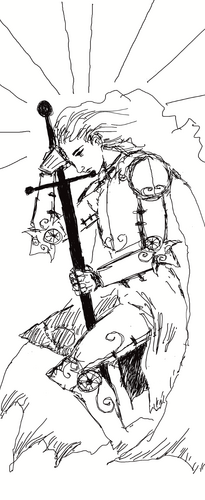
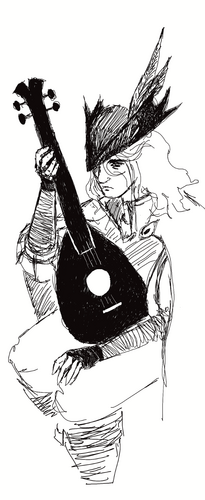
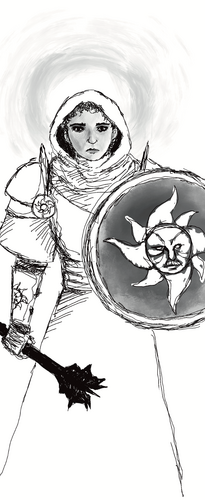
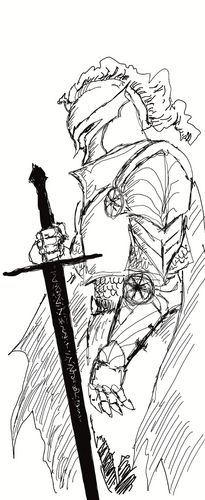
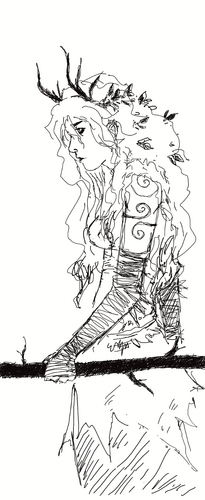
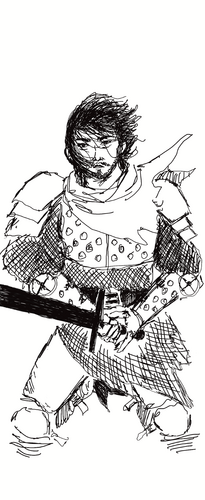
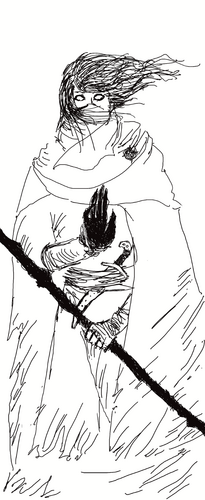
Leave a comment
Log in with itch.io to leave a comment.